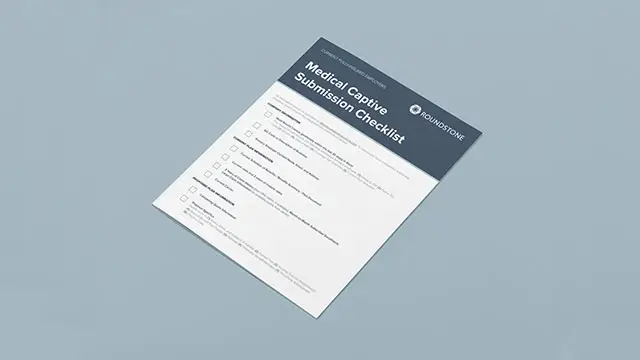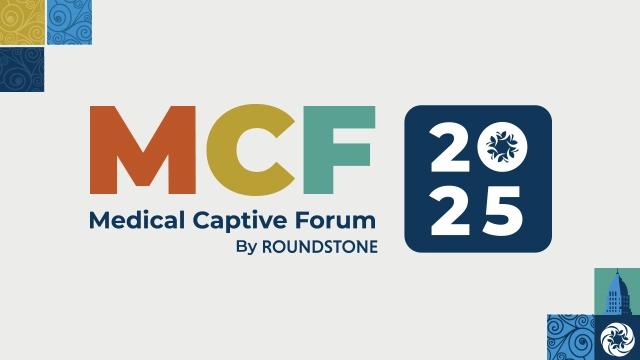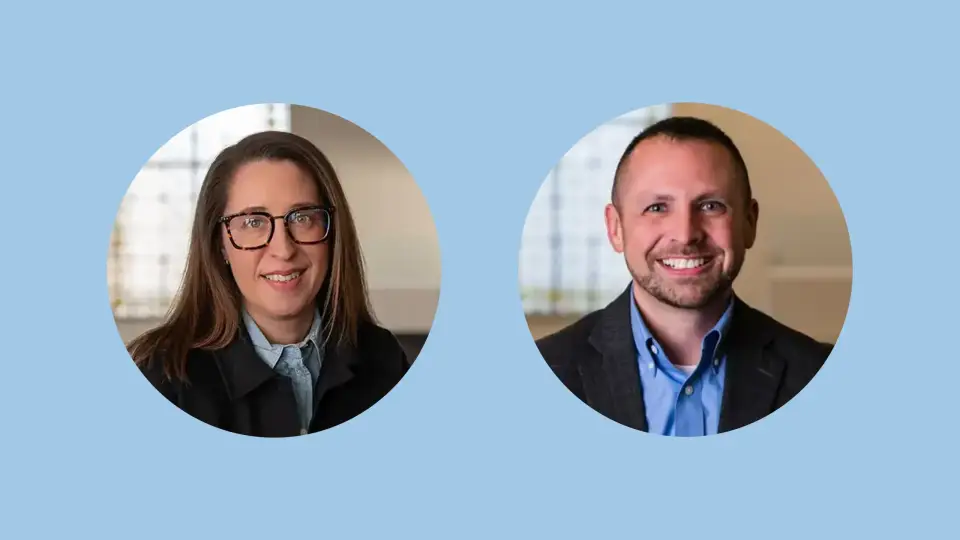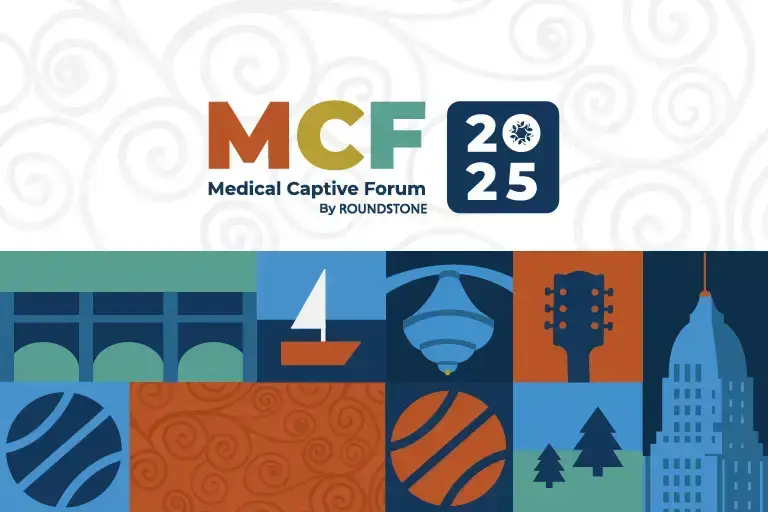- Employers
- Advisors
ADVISORS
Roundstone recognizes and appreciates the important role benefits advisors play — that’s why we only operate through our network of trusted advisors.
- Resources
THE LATEST AND THE GREATEST
- Blog
BLOG
Stay up-to-date with the latest trends and learn about how small to midsize businesses can enjoy the benefits of self funded health insurance.
LATEST POST
FEATURED FAVORITES
- About Us
ABOUT US
We are a health benefits captive providing self-funded solutions to small and mid-sized employers. Our self-funded medical group captive bands employers together to fund their benefits the way much larger Fortune 500 companies do.
- Our TPA
TOPIC
Recapping MCF 2025: Empowering Employers to Break Free from Rising Healthcare Costs
- Abbey Hughes
- 4 Minute Read
- Medical Captive Forum
Find this article helpful? Share it with others.
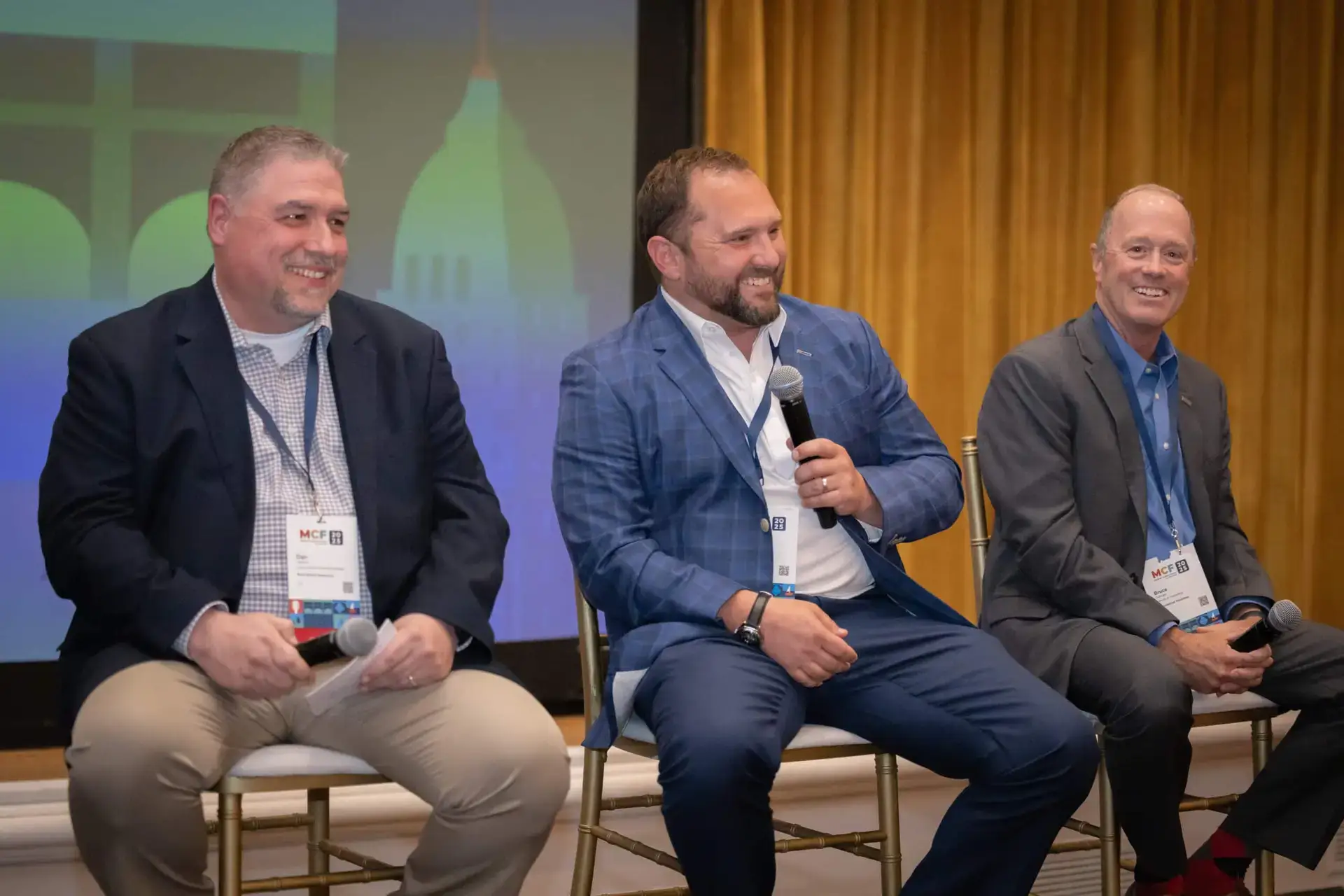
The Medical Captive Forum (MCF) 2025, hosted by Roundstone Insurance, brought hundreds of employers, benefits advisors, and industry leaders to Cleveland for two dynamic days focused on tackling one of business’s biggest challenges: rising healthcare costs.
New Strategies to Save Over $5,000 Per Employee
This year’s theme centered around a bold idea—employers can save over $5,000 per employee annually without compromising the quality of care. Roundstone’s unique approach to healthcare funding through group medical captives continues to deliver sustainable savings, empowering businesses to redirect resources back into their companies and people.
The event showcased documented success stories from businesses across industries that have escaped the traditional insurance cycle. Their results demonstrate that healthcare spending can be managed like any other business expense—with transparency, data, and strategic control.
Join Our Newsletter
Sign up for fresh insights straight to your inbox.
When employers accept 6-8% increases year after year while inflation sits at 2-3%, they're losing ground. It needs to change. - Mike Schroeder

Breaking the Cycle of Helplessness
For decades, employers have been conditioned to view single-digit premium increases as a “win.” During his opening remarks, Roundstone’s President and Founder, Mike Schroeder, called this “cycle of helplessness” unacceptable.
The forum delivered concrete strategies and metrics to make that change happen, moving employers from passive acceptance to active management of their healthcare investment.
Two Days of Insightful Panels and an Inspiring Keynote
Across two days of focused sessions, attendees gained practical tools and strategic insights to take control of their healthcare spending. The carefully curated program offered something for everyone—from employers just beginning to explore self-funding to those looking to optimize their existing captive arrangements.
Keynote: Unlocking Innovation in a Changing Landscape
Josh Linkner’s keynote, “Find A Way™ — Unlocking Innovation in a Changing Insurance Landscape,” inspired attendees to break through conventional thinking and embrace innovation in benefits strategy.
Linkner emphasized that disruption in healthcare funding isn’t just possible—it’s essential for businesses that want to remain competitive while providing quality benefits.
The packed audience responded with enthusiasm to his blend of practical examples and visionary thinking.
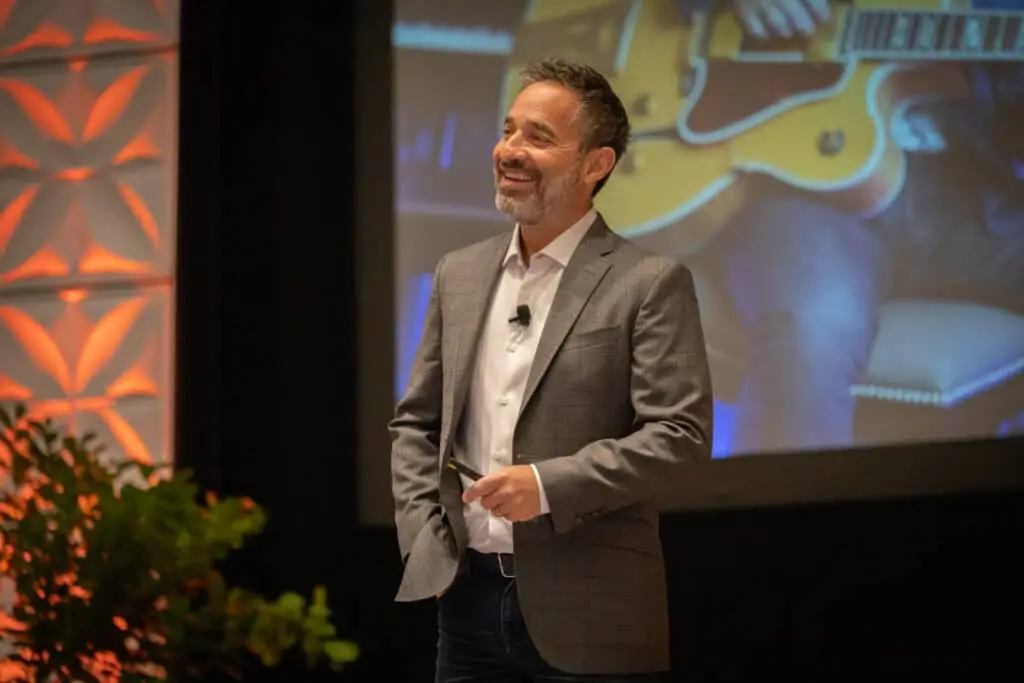

Power Breakout Sessions: Real Tools, Real Results
MCF’s breakout sessions offered targeted education for employers at every stage of their self-funding journey.
Topics included:
Self-Funding Basics and Understanding Captives. A comprehensive introduction to captive insurance models and how they differ from traditional fully-insured approaches.
Cost Containment: Proactive vs. Reactive Approaches. Forward-thinking strategies to manage healthcare spending, with case studies showing impact on PEPY costs.
Managing High-Cost Claims and the Importance of Good TPAs. Practical approaches to mitigating the impact of catastrophic claims while ensuring quality care.
Pharmacy Benefit Manager (PBM) Strategies to Cut Rx Costs. How transparent PBMs and strategic formulary management can cut pharmacy expenses by 30% or more.
Emerging Solutions for Financial Sustainability. New approaches to healthcare delivery that are proving effective in reducing costs while improving care access.

Highlight: Employer Success Stories
The Employer Cost Containment Panel was a standout, showcasing real companies that dramatically reduced healthcare expenses after joining the Roundstone Captive.
Companies that transitioned to Roundstone’s captive model shared their before-and-after metrics:
A manufacturing company reduced PEPY costs by $4,800 in their second year.
A professional services firm eliminated employee premium contributions while improving benefits.
A retail organization cut pharmacy spending by 38% through transparent PBM practices.
These real-world examples reinforced that cost containment is achievable with the right strategies and partners in place.
Empowering Employers with Data-Driven Strategies
Several sessions emphasized the critical role of data transparency in managing healthcare costs effectively. Unlike traditional insurance models that obscure claims data, Roundstone’s approach provides full visibility into spending patterns.
The forum showcased Roundstone’s CSI Dashboard, which gives employers real-time insights into cost drivers and opportunities for improvement. This level of transparency is impossible in traditional insurance arrangements—and explains why fully-insured carriers fight to keep employers in the dark.

"You can't manage what you can't measure, when employers see their data, they find savings opportunities that were previously invisible."
A Market in Flux: Why Acting Now Matters
Industry experts at MCF 2025 pointed to multiple market signals indicating that traditional insurance premium increases will accelerate in the coming 18-24 months:
Provider consolidation continuing to drive price increases
Pharmaceutical costs rising at multiples of inflation
Deferred care during pandemic years now resulting in higher-cost claims
Traditional carriers increasing profit margins to satisfy shareholders
These trends make the transition to self-funded arrangements more financially compelling than ever for mid-sized employers.
Roundstone Makes Attendance Easy
Recognizing that education is the first step toward change, Roundstone covered core attendance costs for the event—a value exceeding $1,500 per attendee. This investment removed financial barriers for businesses wanting to explore alternative funding models.
Looking Ahead: MCF 2026 in Dallas, TX
Building on the overwhelming success of Cleveland, Roundstone announced that MCF 2026 will take place in Dallas, Texas. Registration will open soon, and with the continued support from Roundstone covering core attendance costs, more businesses than ever will have the opportunity to discover how to take control of their healthcare expenses and drive sustainable savings.
For business leaders who couldn’t attend MCF 2025, Roundstone offers personalized consultations to explore how a group medical captive could benefit their organization.

Contact your benefits advisor or reach out directly to Roundstone to learn more about breaking free from the cycle of rising healthcare costs.
Key MCF 2025 Takeaways
Healthcare spending can be managed. With the right funding model and data transparency, employers can actively control costs without reducing care quality.
Savings are substantial and documented. Companies using Roundstone's captive model consistently save 15-25% compared to traditional insurance.
Implementation is simpler than most realize. The transition to a group medical captive is straightforward with the right partners and support systems.
Employees benefit directly. Cost savings allow employers to improve benefits, reduce employee contributions, or invest in other aspects of compensation.
The time to act is now. Market conditions make this an optimal moment to transition to a more sustainable healthcare funding model.
To learn more about how Roundstone’s group medical captive can help your company break free from rising healthcare costs, contact us today.
ABOUT THE AUTHOR

Abbey Hughes
Enjoy Reading?
Check out these similar posts.

How Do Wellness Programs Impact Your Company’s Bottom Line?


How to Use PEPY as a Benchmark to Contain Healthcare Costs
Roundstone Insurance © 2025

